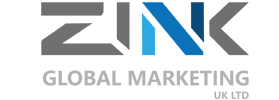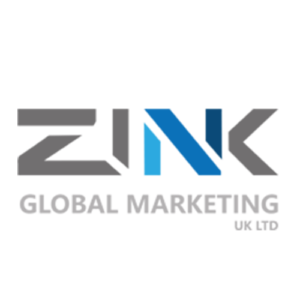Are you prepared to step up your online marketing efforts? If you’re looking to maximize your Return on Investment (ROI) with Pay-Per-Click (PPC) advertising, you’ve come to the right place. In this blog post, we’re going to explore the world of PPC campaign management and share tips and tricks that will help you make the most out of your advertising budget. We’ve got everything covered, from keyword research to ad optimization.
Setting the Stage for PPC Campaign Management Success
Before diving into the nitty-gritty of PPC campaign management, it’s crucial to set the stage for success. Define clear campaign goals and objectives. What do you want to achieve? Whether it’s increasing website traffic, boosting sales, or generating leads, your goals will guide your entire strategy.
Once you’ve established your goals, it’s time to select the right PPC platforms. Google Ads, Bing Ads, and various social media platforms offer PPC advertising opportunities. Choose the platforms that most closely match your target market and business objectives.
Budget allocation is another key factor. Forecast your budget carefully, ensuring you have sufficient funds to support your campaign goals. Remember, PPC is an investment, and a well-thought-out budget is the first step toward a high ROI.
Keyword Research and Selection
Keywords are the lifeblood of PPC campaign management. A good campaign is built on thorough keyword research. Start by brainstorming relevant keywords and phrases that potential customers might use when searching for your products or services.
Consider the distinction between long-tail and short-tail keywords. Long-tail keywords may have less search volume, but they often result in more qualified leads. Use keyword research tools such as Google Keyword Planner or SEMrush to identify high-performing keywords and assess their competitiveness.
Don’t forget about negative keywords. You don’t want to advertise with these keywords. For example, if you’re selling high-end watches, you might want to exclude words like “cheap” or “discount” to avoid attracting the wrong audience.
Crafting Compelling Ad Copy
Your ad copy is your chance to grab the attention of potential customers. To craft compelling ad copy, start with attention-grabbing headlines that pique curiosity. Use action-oriented language and unique selling points to entice clicks.
The ad description is where you can expand on the benefits of your product or service. Emphasize your unique selling points and the reasons customers should select your product. Don’t forget to include a strong call to action (CTA) that tells users exactly what to do next.
Consider A/B testing to compare different ad variations. This way, you can determine which copy resonates best with your target audience and fine-tune your messaging accordingly.
Landing Page Optimization
Your landing page is where the magic happens. Once a user clicks on your ad, they should be directed to a landing page that’s relevant to the ad’s content. This consistency helps reduce bounce rates and increases the likelihood of conversion.
Your landing page should be visually appealing, user-friendly, and mobile-optimized. Ensure that it loads quickly and provides a seamless experience for visitors. Use persuasive copy and strong visuals to guide users toward your desired action, whether it’s making a purchase or filling out a contact form.
Ad Scheduling and Geo-Targeting
Ad scheduling and geo-targeting are essential for reaching the right audience at the right time. Schedule your ads according to the time of day when your target audience will be most active. This can help you maximize your budget by focusing on peak times.
Geo-targeting is a way to display your ads in specific areas. If you have a local business, you can set your ads to display only to users in your area. For e-commerce businesses, consider targeting regions where your products are most popular.
Bid Management Strategies
Bid management is a critical aspect of PPC campaign management. You’ll need to decide whether to use manual or automated bidding. Automated bidding can save time but may require more monitoring to ensure it aligns with your goals.
Understanding Quality Score and Ad Rank is essential. Quality Score is a metric used by Google to evaluate the relevance and quality of your ads and landing pages. The Ad Rank determines the position of your ad in the search results. Improving your Quality Score can reduce your cost per click (CPC) and boost your ad’s visibility.
You can also set bid adjustments to increase or decrease your bids for specific devices, locations, or times. This fine-tuning helps you optimize your spending for better ROI.
Ad Performance Monitoring
Effective PPC campaign management requires constant monitoring of ad performance. Keep a close eye on key metrics like click-through rates (CTR), conversion rates, and return on ad spend (ROAS).
In addition, don’t forget to monitor your competitors. Knowing what your competitors are doing can provide valuable insights and help you stay ahead in the PPC game.
Budget Management and Optimization
Budget management is an ongoing process in PPC advertising. Review your campaign’s performance regularly and adjust your budget as necessary. If a particular keyword or ad group is performing exceptionally well, consider allocating more budget to it. Conversely, if some aspects of your campaign are underperforming, reallocate funds to more successful areas.
Remarketing and Audience Targeting
Remarketing is an effective strategy to engage users who have already interacted with your ads or website. You can increase conversions by showing targeted ads to users. Segment your audience to deliver personalized messages and offers.
Think about building audiences that resemble your current clientele. These audiences share characteristics with your current customer base and are more likely to convert.
Ad Copy and Landing Page Testing
Testing is at the heart of PPC campaign optimization. Keep testing the copy of your ads and landing pages to see what appeals to your target audience. Small tweaks can lead to significant improvements in your ROI.
Ad Quality and Relevance
Maintain the quality and relevance of your ads and landing pages. Google and other PPC platforms reward advertisers who provide a great user experience. Address any ad disapproval issues promptly, and ensure that your ad content aligns with the user’s intent.
Budget Allocation and Scaling
As your campaign grows and succeeds, consider increasing your PPC budget to reach a broader audience. Scaling your successful campaigns can lead to even greater ROI. Diversify your advertising channels to explore new opportunities for growth.
Conclusion
In the world of PPC campaign management, maximizing ROI is a continuous journey. By setting clear goals, conducting in-depth keyword research, crafting compelling ad copy, optimizing landing pages, and using bid management strategies effectively, you can pave the way for success. Regular monitoring, budget optimization, and testing will keep your campaigns on the path to ROI excellence.
Remember, the world of online advertising is dynamic, and staying ahead of the game requires adaptability and a commitment to ongoing learning. Implement these tips and tricks, and watch your PPC campaigns soar to new heights, delivering the ROI you’ve been dreaming of.
Elevate Your Business with Our Digital Marketing Services. Click to Learn More and Grow Today!




